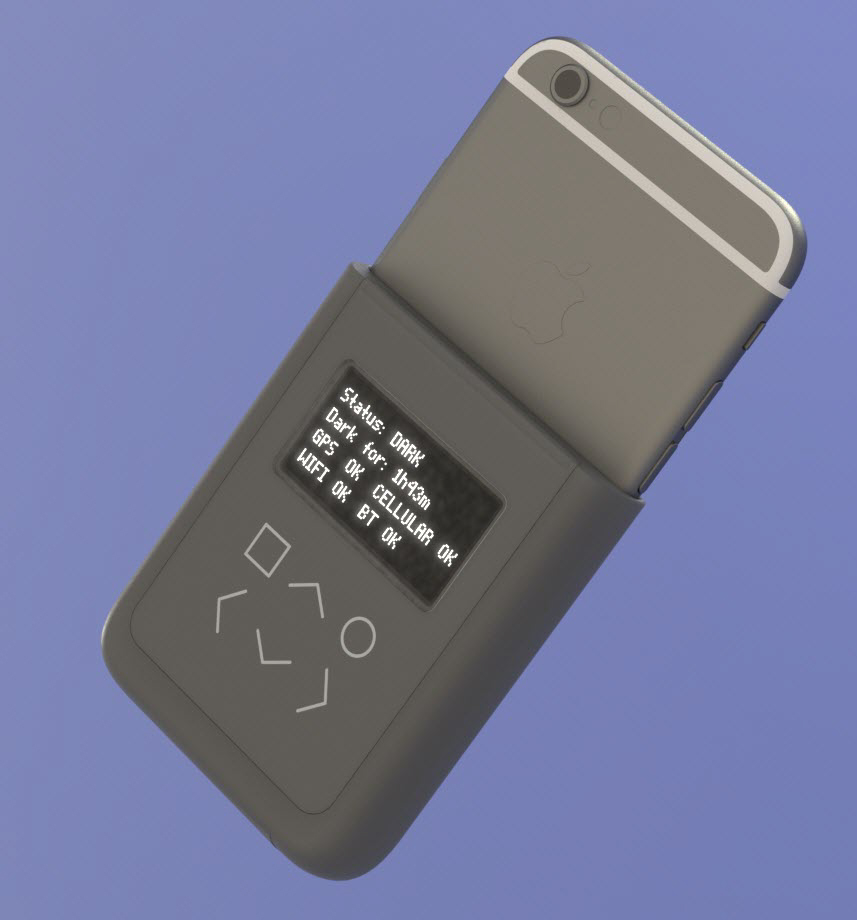Notorious whistle-blower Edward Snowden has helped design an open-source smartphone device that warns people when their phone's antennae are transmitting information.
The goal is to protect people from being digitally spied on by alerting them when their phone is sending or receiving data without their knowledge or permission.
The device, which was designed with hacker Andrew "bunnie" Huang, will also feature a 'kill switch' so users can quickly cut power if their phone is being tracked - something that the duo says is more secure than airplane mode.
A prototype hasn't been built as yet, so there's no evidence it actually works for now, but Snowden and Huang have outlined their design in a paper titled Against the Law: Countering Lawful Abuses of Digital Surveillance.
Looking pretty much like a high-tech phone case, the device is designed to fit over the rear camera lens so that it can't record you without your permission, and features a display screen at the back to keep you updated on your phone's security status.
In order to monitor the internal antennae, the case wires into your phone's hardware via the SIM-card slot. That means it can monitor the electrical signals being emitted by the cellular, Bluetooth, Wi-Fi, or other radio connections.
The SIM card itself would be housed inside the case. You can see a mockup of the device, which they call the "introspection engine", below:
 Andrew Huang and Edward Snowden
Andrew Huang and Edward Snowden
It was originally designed based on iPhone 6, but according to their paper, it will work with any smartphone.
"You can think your phone's radios are off, and not telling your location to anyone, but actually still be at risk," Huang told Andy Greenberg over at Wired.
"Our approach is: state-level adversaries are powerful, assume the phone is compromised," he added. "Let's look at hardware-related signals that are extremely difficult to fake. We want to give a you-bet-your-life assurance that the phone actually has its radios off when it says it does."
The introspection engine was original developed to protect journalists, particularly those in conflict zones, whose phones can be used to figure out their locations.
Snowden has a particular interest in the device, too, seeing as his phone has been used to track his location in the past.
"Since 2013, I haven't been able to have a smartphone like normal people," he told Wired. "Wireless devices are kind of like kryptonite to me."
As we mentioned, the duo haven't yet built a prototype for their device, so we can't get too excited until it's tested IRL.
But their detailed paper outlines how it would work, and the technology is open-source, so anyone with the know-how and equipment is welcome to create it for themselves.
They're also hoping to develop a prototype in the next year and eventually produce modified iPhones in China to supply to journalists - potentially teaming up with the Freedom of the Press Foundation to fund production.
